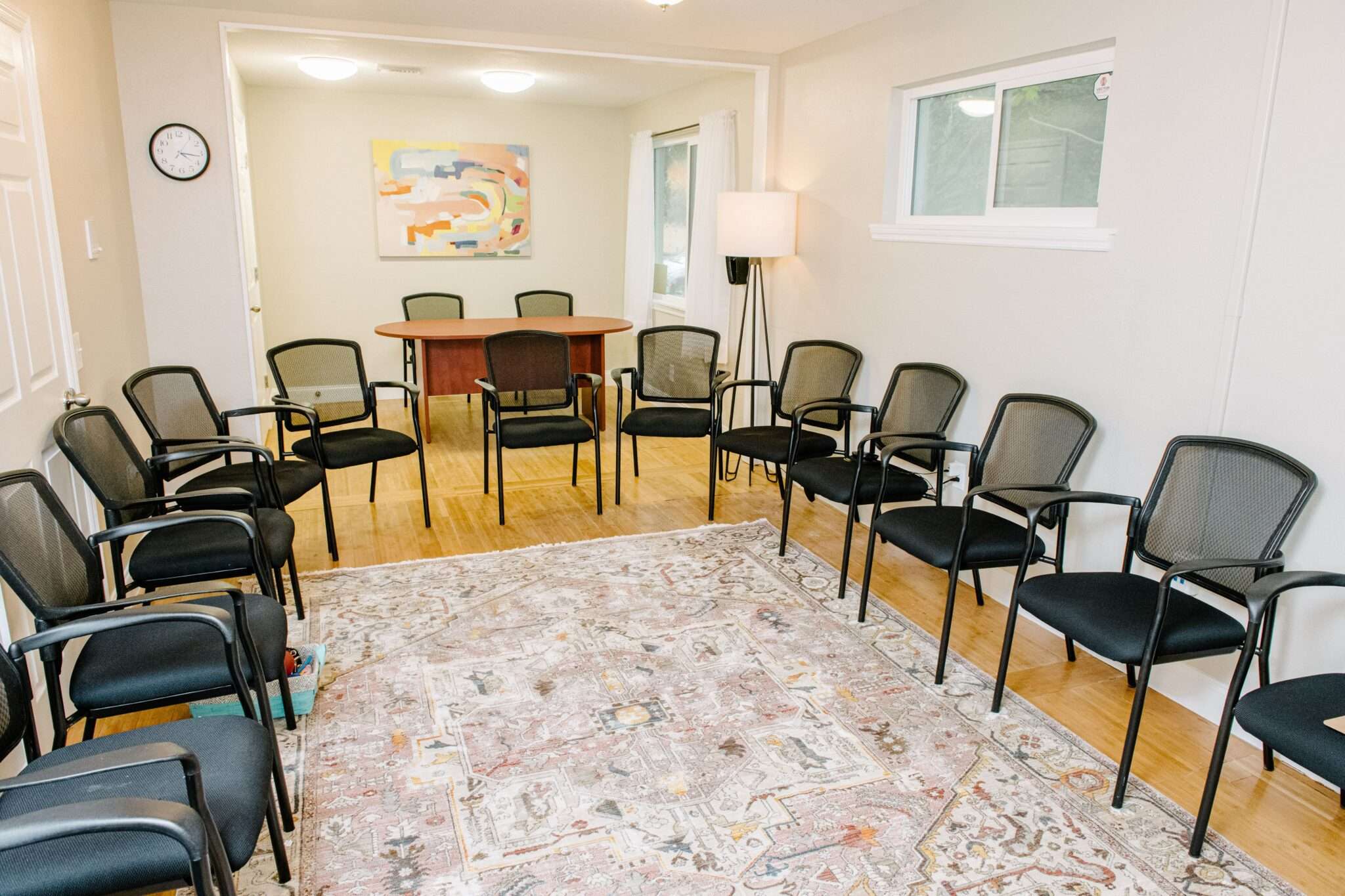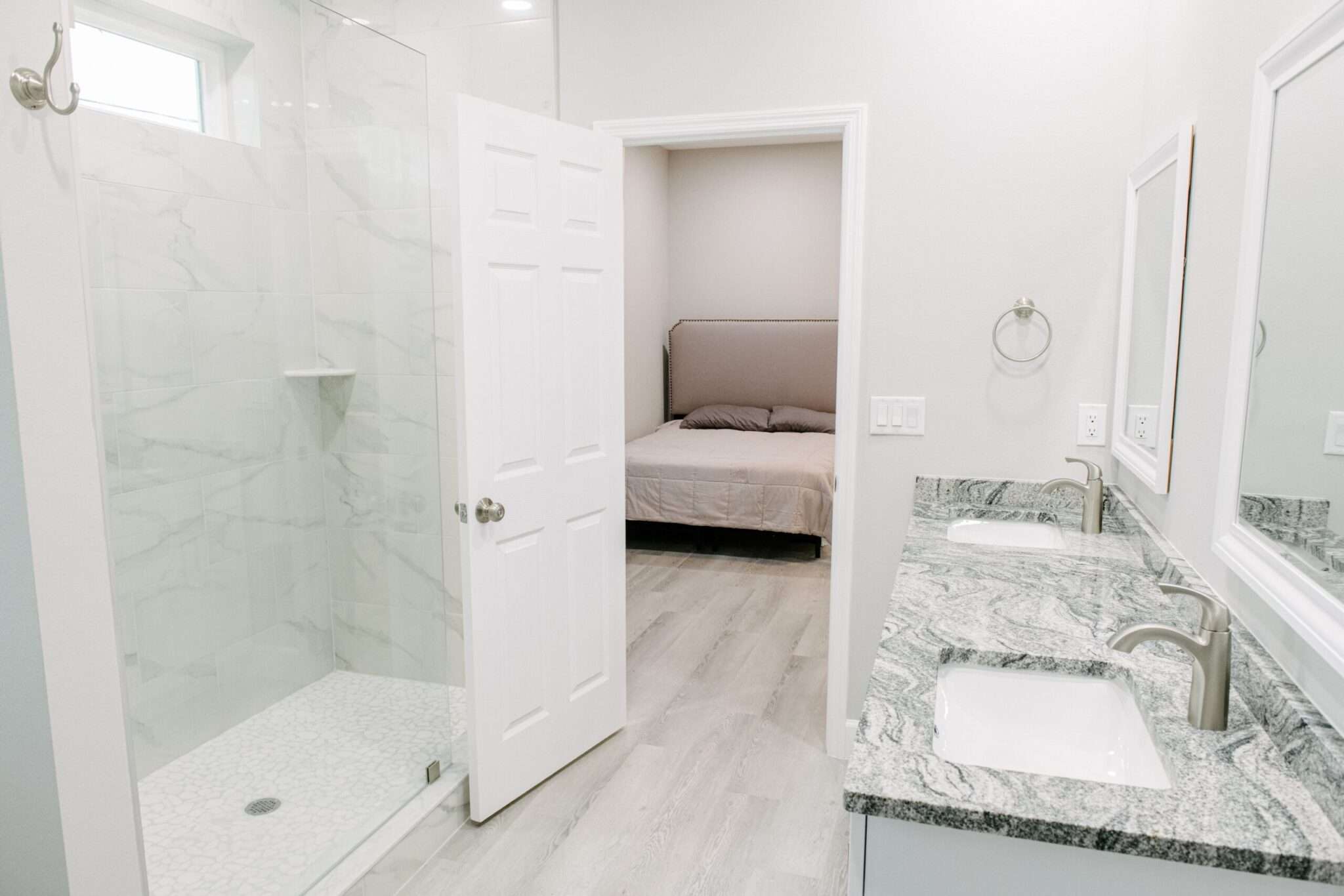Anxiety can make you feel like the world is ending and that your life is in danger. Overwhelming feelings of dread and fear can cause physical symptoms, like difficulty breathing and heart palpitations. So, are there any occasions when you should go to the hospital for anxiety?
At Gulf Coast Recovery Center, we understand that anxiety disorders can cause intense—and often confusing—symptoms. If you or a loved one struggles with severe anxiety symptoms, our outpatient mental health treatment programs can help.
When Should I Go to the Hospital for Anxiety?
Anxiety, like other mental health disorders, occurs on a spectrum from mild to severe. Furthermore, your symptoms can vary in severity from one day to the next, depending on what is going on in your life. Although anxiety disorders aren’t usually life-threatening, there are times when you should go to the hospital for anxiety.
Severe anxiety symptoms could put you into a tailspin. You might feel like there is no way out and this can be dangerous, as some people go to extreme lengths to find relief. If you experience the following, you should go to the hospital for immediate attention:
- Suicidal ideations or actions: Sometimes, mental health disorders like anxiety and depression, can make you feel like you have no hope for getting better. According to the Centers for Disease Control and Prevention (CDC), 49,449 lives were lost to suicide in 2022. If your anxiety is so severe that you are suicidal, get professional help immediately or talk to someone now.
- Self-harming behaviors: Sometimes, severe anxiety symptoms result in self-harm. Non-suicidal self-harm refers to self-injurious behaviors—like cutting, burning oneself, or head-banging—not intended to result in death. While self-harming behaviors are usually not life-threatening, they can result in severe injuries or infections.
- Drug or alcohol overdose: Substance abuse is often a maladaptive (unhealthy) coping mechanism for an underlying mental health issue. That is why many people develop dual-diagnosis disorders—or co-occurring mental health and substance use disorders. When overwhelmed with anxiety, you or a loved one might drink heavily or consume large amounts of drugs—putting you at risk of overdose.
Of course, sometimes anxiety symptoms can feel like you are in a life-or-death situation. And when you have a panic attack, but are unfamiliar with what a panic attack feels like, you might go to the hospital fearing something else is wrong.
Are Panic Attacks Life-Threatening?
Panic attacks are not life-threatening, however, they certainly feel that way. If you’ve never had one before, you’ll most likely go to the hospital assuming you have a medical issue. This is common—after all, you always want to rule out any medical concerns when you have unfamiliar symptoms.
Having a panic attack is a common reason why you might go to the hospital for anxiety. Oftentimes, panic attacks feel like a heart attack. While at the hospital, you’ll be tested for other medical issues and, if you’re having a panic attack, your symptoms will subside within about 5 to 20 minutes.
What Can I Do to Manage My Anxiety?
If you have an anxiety disorder, you can take steps to manage symptoms to avoid panic attacks or other severe symptoms. In general, reducing stress by engaging in healthy lifestyle habits will help you manage anxiety.
Although you can’t always control your anxiety symptoms, the following tips can help you reduce the severity of your symptoms:
- Exercise Regularly. One of the best ways to reduce anxiety is physical activity. Regular exercise doesn’t need to be complicated. You can take a brisk walk for about a half hour once a day to get the benefits. The trick is to find something you can fit into your daily routine.
- Breathwork. Breathing exercises are great coping skills for managing anxiety. By taking deep, intentional breaths for a minute or so, you can redirect your focus and regain control over anxiety symptoms like shallow breathing and rapid heart rate.
- Healthy eating. Nutrition and diet play a significant role in managing both physical and mental health. Try to have healthy snacks on hand, like fruit or nuts, to maintain healthy blood sugar levels. In addition, be sure to drink plenty of water throughout the day.
- Diversionary activities. Sometimes, you need something to distract you from your symptoms. Diversionary activities are meant to keep your mind occupied, which can reduce panic and racing thoughts associated with anxiety. Find something you enjoy—listening to music, drawing, journaling, putting a puzzle together, playing a game, etc.—to remain distracted from anxious thoughts.
In addition to the above, if you struggle with anxiety, you can get professional treatment to learn more about your disorder and reduce symptoms.
What Does Anxiety Treatment Look Like?
Our anxiety treatment program includes psychiatric medications, psychotherapy, and holistic approaches. We use evidence-based practices to ensure that you get the best treatment available. In addition, our programs are client-centered, meaning that we empower you to find the path to wellness that meets your unique needs.
The following methods are proven to treat anxiety disorders:
- Psychiatric medications help to reduce symptoms of anxiety by addressing chemical imbalances in the brain. Your psychiatrist may prescribe anti-anxiety or anti-depressant medications to reduce anxiety.
- Psychotherapy is one of the most effective ways to treat any mental health disorder. During therapy, you can learn more about your symptoms and triggers while getting valuable insight and coping skills.
- Holistic approaches address all aspects of your health and wellness. This includes your physical, mental, emotional, and spiritual health. Holistic treatment can include yoga, gardening, kayaking, art therapy, and reiki.
Get Treatment for Anxiety Today
Anxiety disorders can cause severe symptoms such as panic attacks, difficulty breathing, or a racing heart rate. You might feel like you need to go to the hospital for anxiety when these symptoms appear. But the best way to treat anxiety is to get ahead of these symptoms before they get out of control.
If you or a loved one struggles with anxiety, you can get help to reduce the severity of your symptoms. Contact Gulf Coast Recovery Center in Tampa, Florida, today to begin anxiety treatment.
















